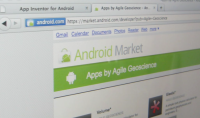Pricing professional services, again
/I have written about this before, but in my other life as an owner of a coworking space. It's come up in Software Underground a couple of times recently, so I thought it might be time to revisit the crucial question for anyone offering services: what do I charge?
Unfortunately, it's not a simple answer. And before you read any further, you also need to understand that I am no business mastermind. So you should probably ignore everything I write. (And please feel free to set me straight!)
Here's a bit of the note I got recently from a blog reader:
Let's break the reply down into a few aspects:
Know the price you're aiming for and don't go below it. I've let myself get beaten down once or twice, and it's not a recipe for success: you may end up resenting the entire job. One opinion on Software Underground was to start with a high price, then concede to the client during negotiations. I tend to keep a fair price fixed from the start, and negotiate on other things (scope and deliverables). Do try not to get sucked into too much itemization though: it will squeeze your margins.
But what is the price you're aiming for? It depends on your fixed costs (how much do you need to get the work done and pay yourself what you need to live on?), time, complexity, your experience, how simple you want your pricing to be, and so on. All these things are difficult. I tend to go for simplicity, because I don't want the administrative overhead of many line items, keeping track of time, etc. Sometimes this bites me, sometimes (maybe) I come out ahead.
Come on, be specific. If you've recently had a 'normal' job, then a good starting point is to know your "fully loaded cost" (i.e. what you really cost, with benefits, bonuses, cubicle, coffee, computer, and so on). This is typically about 2 to 2.5 times your salary(!). That's what you would like to make in about 200 days of work. You will quickly realize why consultants are apparently so expensive: people are expensive, especially people who are good at things.
It's definitely a good idea to know what you're competing with. However, it can be very hard to find others' pricing information. If you have a good relationship with the client, they may even tell you what they are used to paying. Maybe you give them a better price, or maybe you're more expensive, because you're more awesome.
Remember your other bottom lines. Money is not everything. If we get paid for work on an open source project (open code or open content), we always discount the price, often by 50%. If we care deeply about the work, we ask for less than usual. Conversely, if the work comes with added stress or administration, we charge a bit more.
One thing's for sure: sometimes (often) you're leaving money on the table. Someone out there is charging (way) more for (much) lower quality. Conversely, someone is probably charging less and doing a better job. The lack of transparency around pricing and salaries in the industry doubtless contributes to this. In the end, I tend to be as open as possible with the client. Often, prices change for the next piece of work for the same client, because I have more information the second time.
Opinions wanted
There's no doubt, it's a difficult subject. The range of plausible prices is huge: $50 to $500 per hour, as someone on Software Underground put it. Nearer $50 to $100 for a routine programming job, $200 for professional input, $400 for more awesomeness than you can handle. But if there's a formula, I've yet to discover it. And maybe a fair formula is impossible, because providing critical insight isn't really something you can pay for on a 'per hour' kind of basis — or shouldn't be.
I'm very open to more opinions on this topic. I don't think I've heard the same advice yet from any two people. When I asked one friend about it he said: "Keep increasing your prices until someone says No."
Then again, he doesn't drive a Porsche either.
If you found this post useful, you might like the follow-up post too: Beyond pricing: the fine print.
“just shut up and give me all the money!” by torbakhopper is licensed under CC BY 2.0












 Except where noted, this content is licensed
Except where noted, this content is licensed